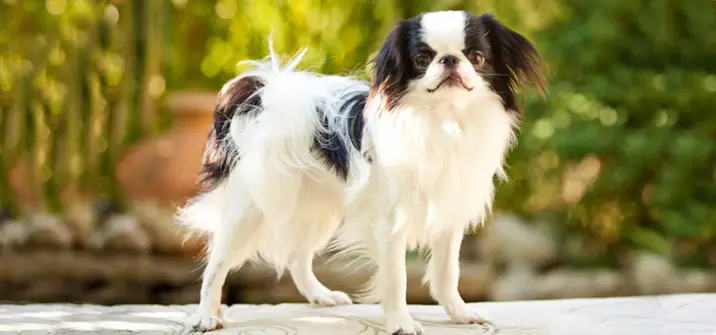The Japanese Chin originated in Japan and was bred to be a companion dog. This little dog was given as gifts to royalty and was thought to have become quite popular in the mid 1800's when two were given as a present to Queen Victoria. Originally the Japanese Chin was called the Japanese Spaniel and was inducted into the AKC in 1977.
This little dog has an under bite making their jaw look protruded like that of a bulldog. They have a large forehead and a turned upward nose making their nostrils look wide. Their legs are short and slender giving them a charming little gait. The Japanese Chin has a thick, lustrous coat and their tail is loosely curled over.
This breed is an animated and charismatic dog that is full of life! They are well behaved and cheerful but may act aloof around people they've never met. Once they are introduced a few times they will become much more friendly and outgoing. This breed usually bonds to one person more so then any others making them a one person dog.


